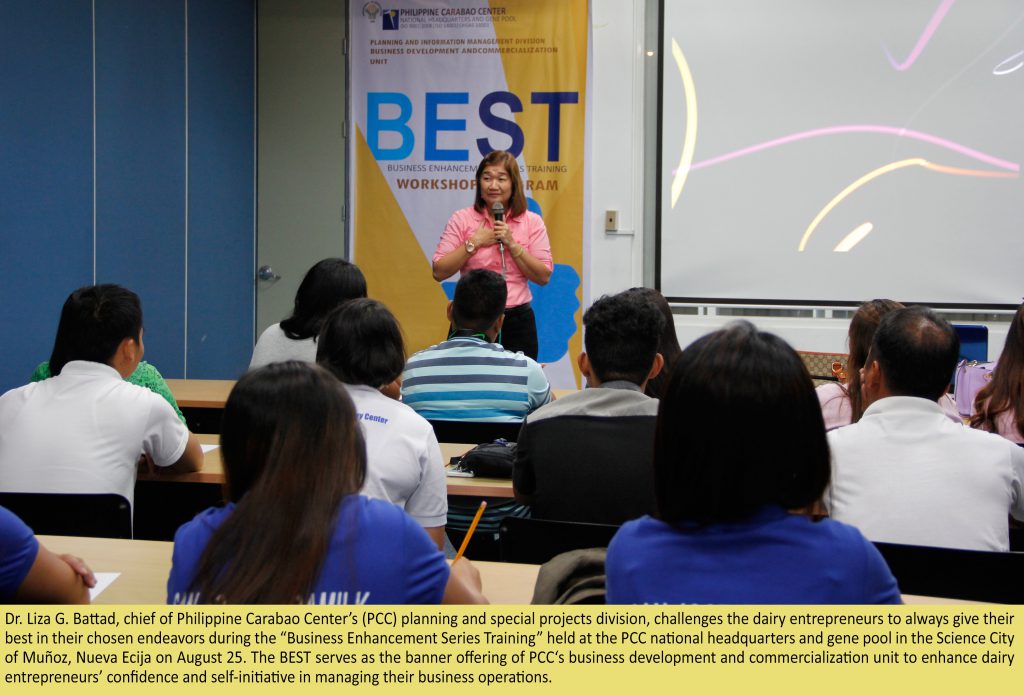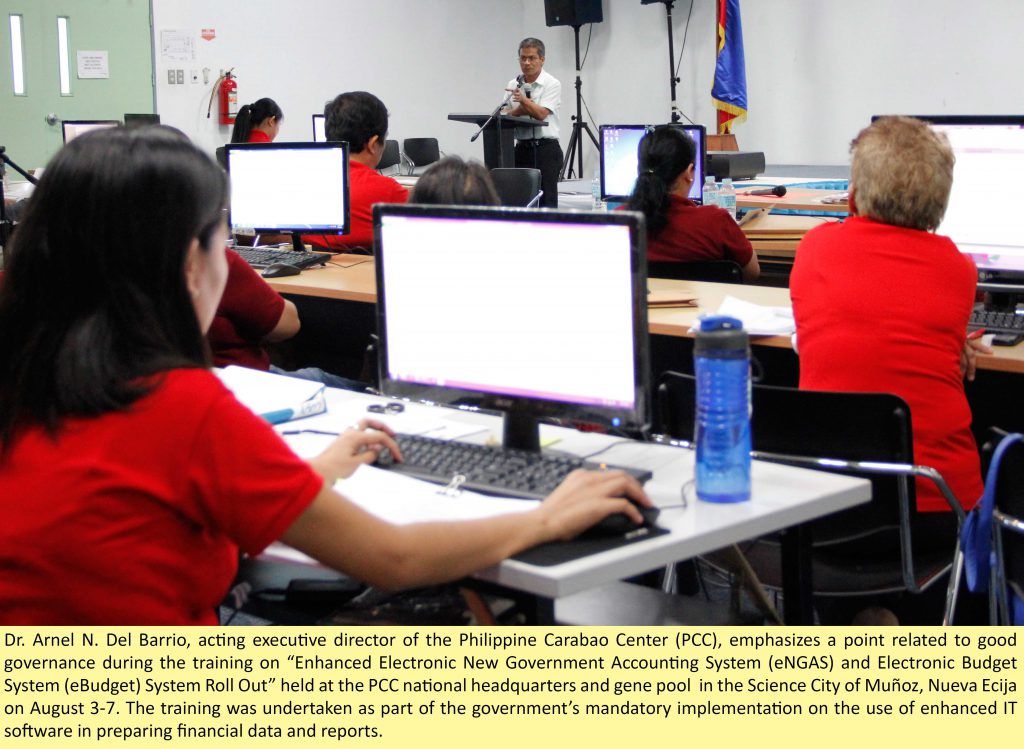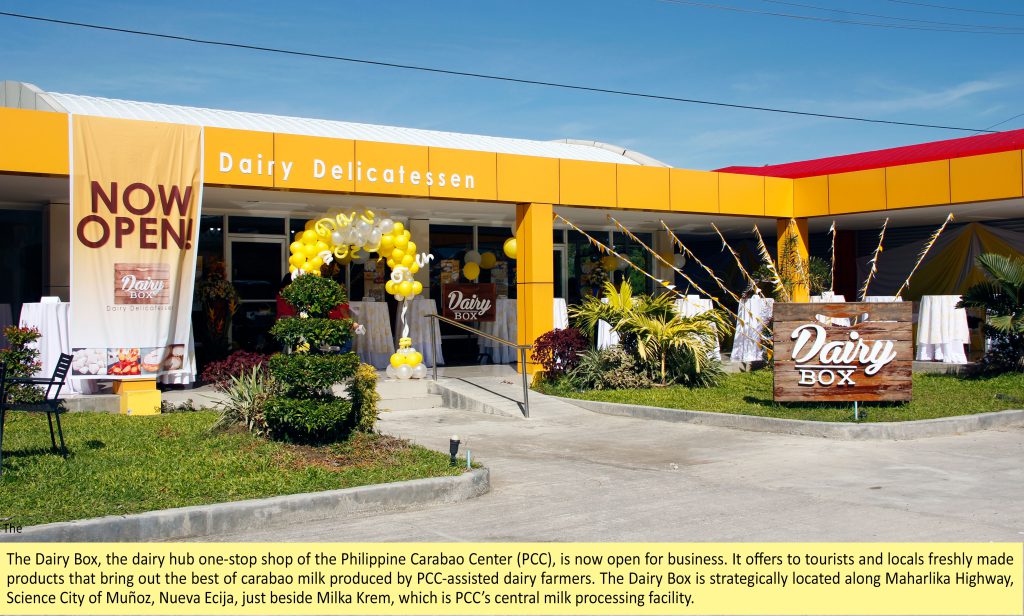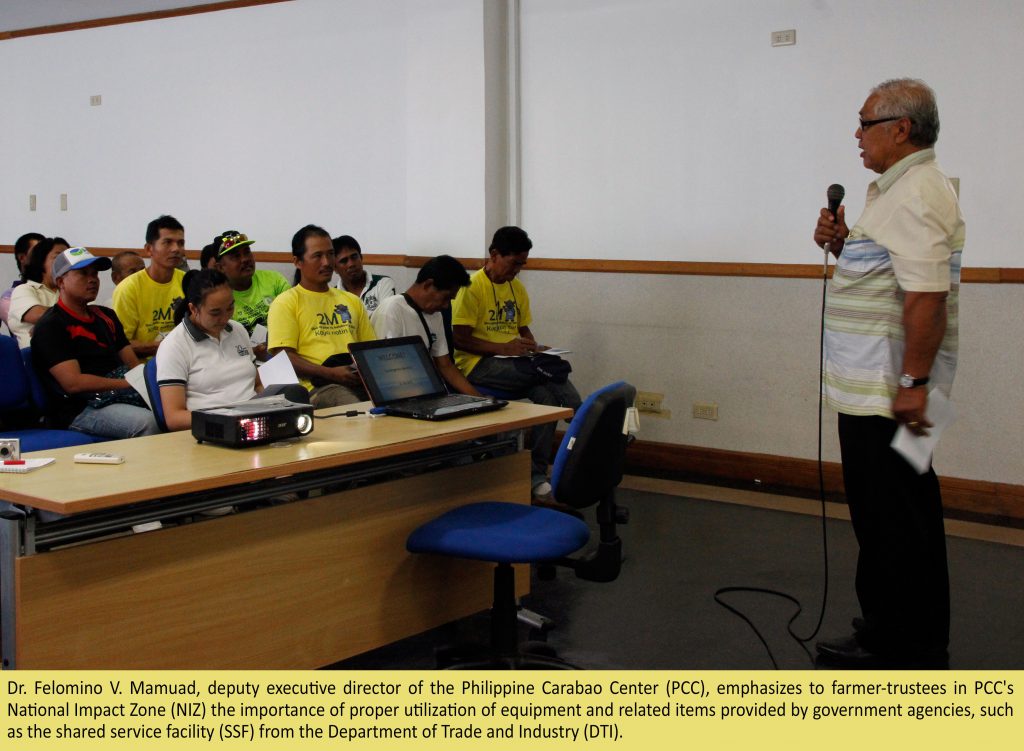The Philippine Carabao Center (PCC), through its Business Development and Commercialization Unit (BDCU), held a workshop for dairy entrepreneurs under the agency’s “Business Enhancement Series Training (BEST)” program on August 25 at the PCC national headquarters and gene pool in the Science City of Muñoz, Nueva Ecija.
The BEST program seeks to enable dairy cooperatives to independently own and manage their enterprises as viable business undertakings. It comprises a series of trainings and workshops to equip the co-ops and its members involved in dairy processing with knowledge and skills in plant operation, production standardization and store management.
The pioneering groups which underwent the training were members of the Nueva Ecija-based Catalanacan Multi-Purpose Cooperative and Eastern Primary Multi-Purpose Cooperative, along with staff of Milka Krem, which is PCC’s central processing plant cum product outlet.
“Business enhancement series training means we are expecting you to do your best on your endeavors. The top management of PCC is expecting a lot from you. From this day forward, you will be taught on how to not depend on PCC because you, yourselves can do better if not the best. You just have to trust your own capabilities because PCC only has limited capacity. Thank you for choosing to learn, and thank you for being your best,” Dr. Liza G. Battad, chief of PCC’s planning and special projects division, said in her welcome remarks.
Initial activities lined up in the BEST program seek to address current difficulties faced by farmers as they upscale their production and distribution, such as inconsistencies, spoilage, stock-outs, communication failures and misunderstandings. The activities culminate in a series of training-workshops that encourage quality consciousness and continuous improvement to effectively integrate and sustain knowledge and skills gained from the program.
“From what we observed, there are some problems arising in the cooperatives. We noticed that they need to change their perspective on certain things so that they’d be able to easily address the problems in their respective cooperatives. We cannot fully teach them the system they need to apply. As businessmen or as entrepreneurs, it should come from them on how to establish a good system and manifest continuous improvements. They should know how to identify the problems and address solutions. There are small things they do that could contribute in the development of their enterprise,” Jan Czarina Salas, business development analyst, explained.
According to Salas, the program involves three major activities. First is the “BEST Me Workshop” to orient participants on the right attitude and perspective towards dynamic changes happening in their environment. Second is the “BEST Problem Solving Approach Workshop” to effectively sustain the application of knowledge learned from prior activities and for them to gain clear understanding and confidence in strategically dealing with problems arising from their day-to-day operations. Third is the “BEST: Inter Dairy Kaizen Competition (IDKC)”. It is a venue for the program’s participating teams to present their Kaizen (Japanese word meaning “change for better”)-inspired problem-solving procedures based on their identified problems from the previous activity. The groups then present their outputs based from detailed instructions in the previous activity. Outstanding presentations in two categories, namely, dairy plant processing and dairy sales and marketing, are given due recognition.
“We don’t want them to just learn how to do business, but also to ignite the business-consciousness inside of them and make it their core, every member of the dairy processing team is an entrepreneur,” she further said.
Aside from the major activities, the program also provides support activities, such as dairy plant standardization, benchmarking tour and store management training.
“The program is strategically designed and implemented to develop independence and confidence by trusting their capabilities, especially those that will be harnessed by the program. Creatively, we will use the motivating force of “competition” to encourage them to perform excellently and more consciously about the relevant factors, especially those that are just driven by emotions and behaviors,” Zadieshar Sanchez, PCC-BDCU project evaluation officer, stressed.
Kimberlie Alejo-De Vera, former Kaizen trainer at Toyota in Cabanatuan City, Nueva Ecija, served as the resource speaker for the training.
“Sometimes, we see problems as problems, we don’t see it as something that needs solutions. Always remember that a problem is an opportunity to excel. It is a matter that we have to make an effort to solve,” she pointed out on how dairy entrepreneurs should face their problems encountered.
The next set of trainings under the BEST program is scheduled for September and December this year.




